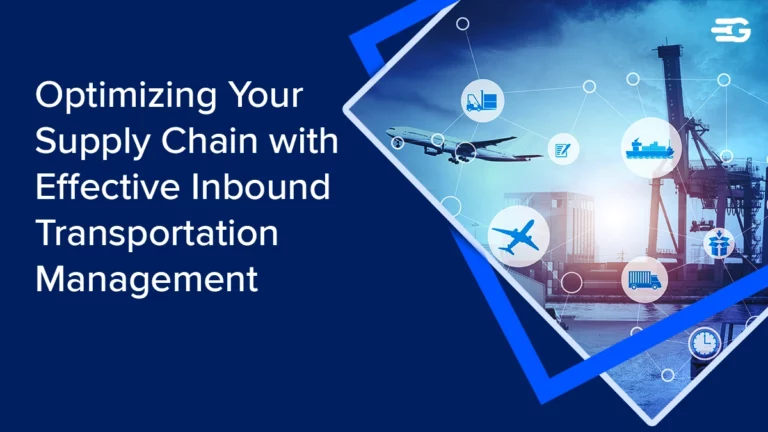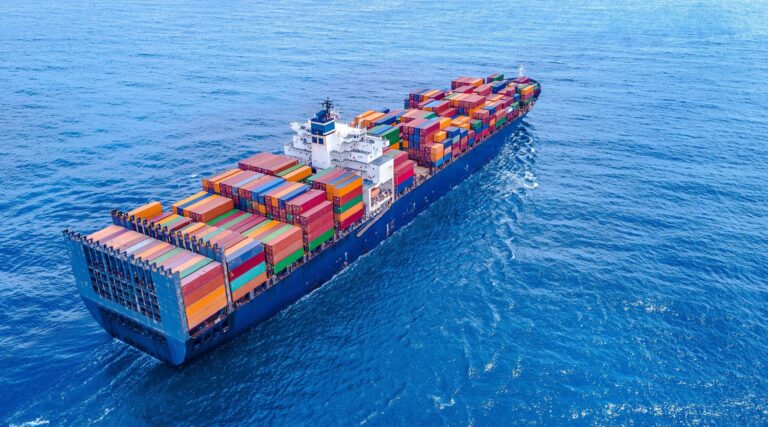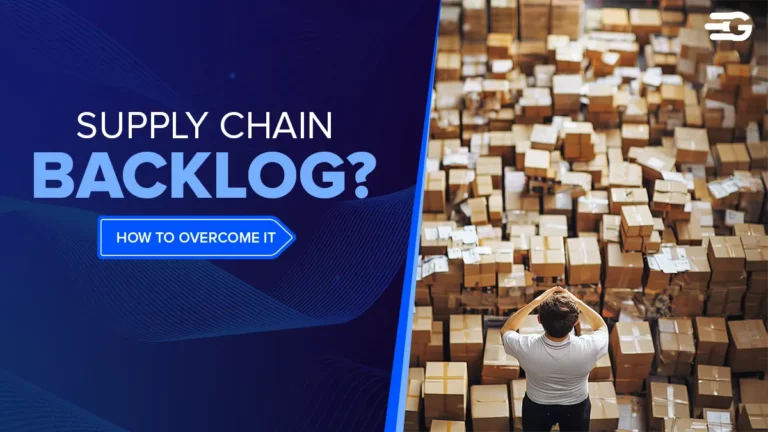Project 44 Review 2025: Competitor Comparison
The supply chain visibility software market is competitive. Companies today need tools that help them track their goods and shipments in real-time. One of the most prominent names in this space is Project 44. But how does it stack up against its competitors in 2025? In this post, we will evaluate Project 44 and compare it with other leading solutions in the industry.
Understanding Project 44: An Overview of the Platform
Project 44 is a cloud-based software designed to offer real-time visibility into supply chain operations. It allows businesses to track shipments, manage inventory, and streamline their logistics processes.
The platform integrates with transportation management systems (TMS), enterprise resource planning (ERP) tools, and other supply chain management solutions. Its key feature is real-time tracking, helping companies stay on top of their shipments with minimal delays.
The platform also offers a range of advanced features, including predictive analytics, which helps businesses anticipate delays and disruptions. For companies focused on optimizing their supply chain, Project 44 offers a powerful tool to stay connected and informed.
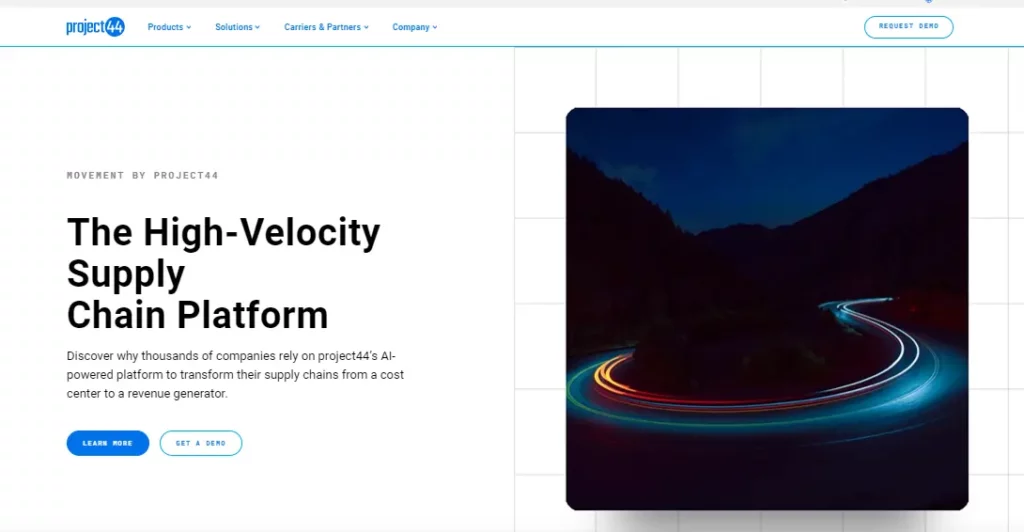
Criteria for Selecting the Best Project 44 Competitors
When comparing Project 44 with its competitors, several key factors should guide your decision:
- Integration: The platform’s ability to seamlessly connect with existing systems like TMS and ERP is essential. A smooth integration ensures that all your supply chain data flows in one place without disruption.
- Tracking Accuracy: Real-time, accurate tracking is a must. The ability to monitor shipments in detail, with minimal delays or errors, is crucial for effective decision-making and proactive issue resolution.
- Ease of Use: A user-friendly interface that’s intuitive and easy to navigate reduces onboarding time and supports day-to-day operations, making the tool accessible even to non-technical staff.
- Customer Support: High-quality, responsive customer service can significantly reduce downtime. Platforms that offer reliable support are better equipped to address issues quickly.
- Cost-Effectiveness: The solution should deliver value for the price. Companies with smaller budgets should look for platforms that balance functionality with affordability.
- Scalability: As your business grows, your platform should be able to scale with your needs, accommodating increased shipment volumes, data, and users without significant extra costs or performance issues.
Next, we’ll dive into how Project 44 compares to its competitors in terms of these factors.
Top Project 44 Competitors
| Software | Real-Time Visibility | Predictive Analytics | Ease of Integration | Scalability | User Interface | Port Congestion Status Data |
| Project44 | ✓ | ✓ | ✓ | ✓ | ✓ | ✗ |
| GoComet | ✓ | ✓ | ✓ | ✓ | ✓ | ✓ |
| Flexport | ✓ | ✓ | ✗ | ✓ | ✓ | ✗ |
| Shippeo | ✗ | ✓ | ✓ | ✓ | ✗ | ✗ |
| Alpega | ✓ | ✗ | ✓ | ✓ | ✗ | ✗ |
| FourKites | ✓ | ✓ | ✗ | ✓ | ✓ | ✗ |
| Transporeon | ✓ | ✗ | ✓ | ✓ | ✗ | ✗ |
| Freightos | ✗ | ✗ | ✓ | ✓ | ✓ | ✗ |
| E2open | ✓ | ✓ | ✗ | ✓ | ✗ | ✗ |
| FreightPOP | ✗ | ✗ | ✓ | ✗ | ✓ | ✗ |
Notes:
- Real-Time Visibility: Strength in tracking shipments and providing updates across the supply chain.
- Predictive Analytics: Advanced tools for forecasting delays and optimizing supply chain performance.
- Ease of Integration: How seamlessly the software connects with other systems (e.g., TMS, ERP).
- Scalability: Suitability for companies of varying sizes.
- User Interface: How intuitive and user-friendly the platform is.
- Price Suitability: Affordability for small and medium-sized businesses (SMBs).
1. GoComet
GoComet stands out as a superior alternative to Project44 by offering a wide range of the same features, including real-time shipment visibility and predictive analytics. This highly-rated AI visibility platform brings a unique advantage with its port congestion database, enabling users to forecast delays and optimize logistics based on real-time port data. This gives businesses an edge in navigating supply chain disruptions more efficiently, a feature that Project44 does not currently offer.
With its seamless integration and user-friendly interface, GoComet provides a comprehensive solution that makes it an excellent choice for businesses looking to gain better control over their shipping operations.
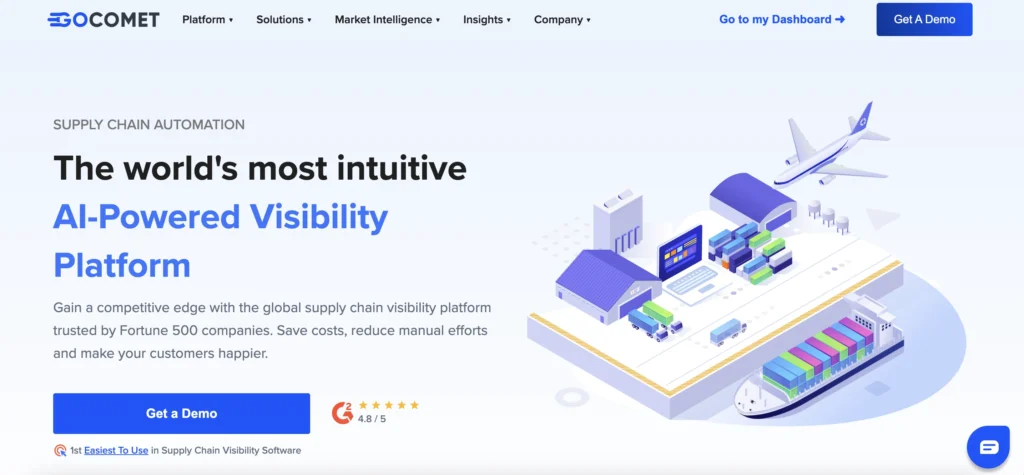
Key Features:
- Real-Time Shipment Tracking: Monitor shipments across multiple carriers with live updates, ensuring transparency and proactive issue management.
- Port Congestion Status: Access real-time port congestion data to plan shipments effectively, reducing delays and optimizing delivery times.
- API Integrations: Seamlessly connect with TMS, ERP, and other systems, enabling a unified logistics workflow.
- User-Friendly Interface: Features an intuitive design for faster adoption and minimal training requirements.
- Carrier Collaboration: Collaborate with multiple carriers efficiently to improve shipment coordination and management.
Limitations:
- SKU-Level Insights Unavailable: Lack of detailed SKU-level data may hinder granular decision-making for inventory and supply chain management
Ratings:
- G2 Rating: 4.8/5
- Gartner Rating: 4.9/5
Testimonials:
“The platform is excellent for tracking real-time shipments, offering reliable ETA predictions. The integration with multiple carrier systems has been seamless.”
2. FourKites
FourKites competes closely with Project 44 in terms of predictive visibility and real-time tracking. It is especially powerful in data analytics and is ideal for larger enterprises. However, its complexity make it less suitable for small to medium-sized businesses compared to Project 44.
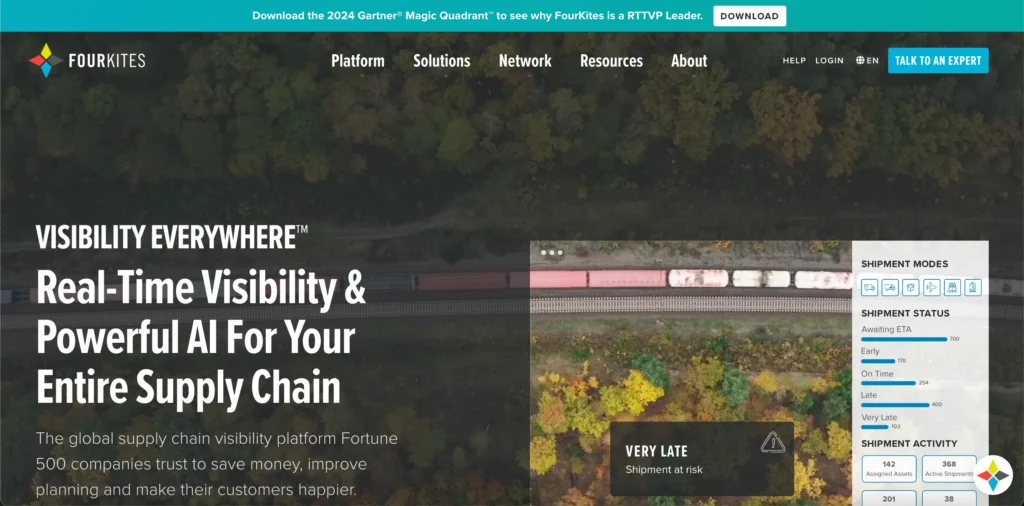
Key Features:
- Real-Time Multi-Modal Tracking: Enables live tracking of shipments across various transportation modes, ensuring comprehensive visibility.
- Predictive Insights: Utilizes machine learning to forecast delivery times and optimize logistics processes.
- Seamless Integration: Easily integrates with existing systems like ERPs and TMS for streamlined operations.
- Global Carrier Network: Connects users to an extensive network of carriers to enhance logistics efficiency and management.
Limitations:
- Challenging Reporting Tools: Users find the reporting features difficult to navigate, suggesting a need for simpler, customizable dashboards.
- Accessibility Concerns: The interface lacks visual clarity, making it harder for users with poor eyesight to operate effectively.
Ratings:
G2 Rating: 4.5/5
Gartner Rating: 4.5/5
Testimonials:
“FourKites captures and holds a ton of data, most of the data is easy to locate but nice to have it all in one location. FourKites can be great software. However, the reporting tools are nothing but a giant data dump and are difficult to navigate.“
3. Descartes
Descartes is a strong competitor with its global network and route optimization tools. It offers real-time tracking similar to Project 44 but with a stronger focus on logistics and route planning. Its high cost makes it a less attractive option for smaller businesses.
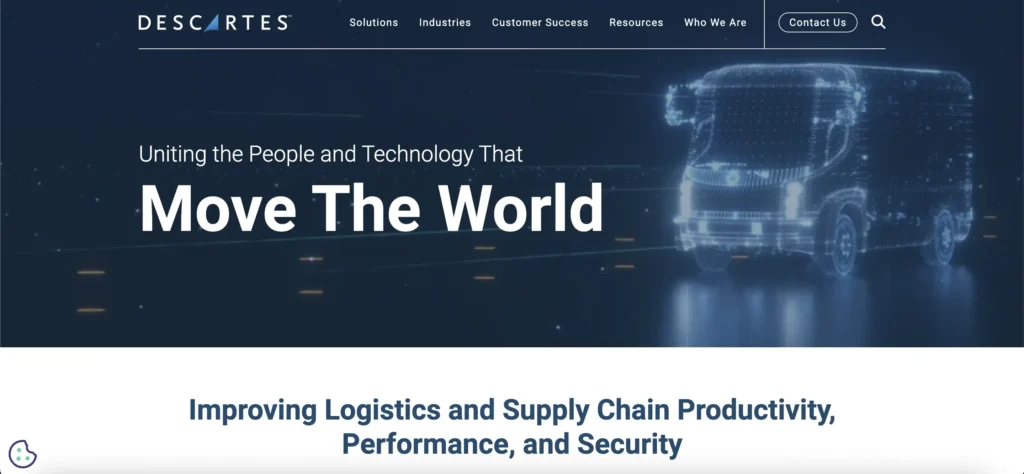
Key Features:
- Comprehensive Global Shipment Tracking: Enables real-time tracking across various modes of transportation, ensuring end-to-end visibility for international and domestic shipments.
- Advanced Route Optimization: Analyzes multiple factors like distance, traffic, and costs to suggest the most efficient and cost-effective shipping routes.
- Integrated Transportation Management: Offers a suite of tools for managing logistics, carriers, and freight operations, providing seamless coordination and operational efficiency.
- Real-Time GPS Integration: Leverages GPS technology for precise, real-time location tracking, enhancing shipment monitoring and responsiveness to delays.
Limitations:
- Inability to Duplicate Multiple Loads: Users are restricted to duplicating one load at a time, which slows down operations. Adding a feature for bulk load duplication would significantly enhance workflow efficiency.
- Overly Complex Interface: The interface has too many tabs, making it less intuitive and harder to navigate. Simplifying and consolidating tabs could improve usability and reduce confusion for users.
Ratings:
G2 Rating: 4.6/5
Gartner Rating: 4.0/5
Testimonials:
“Having everything right in front of me and making it hard to make any mistakes. Sometimes I feel like there are too many tabs that need to be more condensed.”
4. Transporeon
While Project 44 focuses on supply chain visibility, Transporeon offers a comprehensive suite with dynamic pricing and transport management. Transporeon is ideal for those seeking a more holistic view of their transportation costs but lacks the same depth of predictive analytics as Project 44.
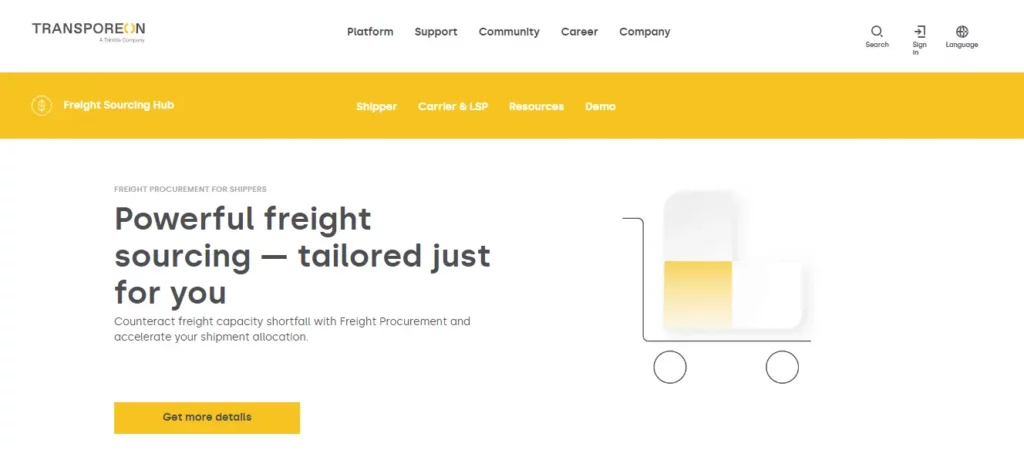
Key Features:
- Real-time Freight Insights: Transporeon provides up-to-the-minute freight data, allowing users to make informed decisions based on current logistics status.
- AI and Machine Learning Automation: The platform uses AI and machine learning to enhance the accuracy and efficiency of logistics operations, streamlining complex processes.
- Collaborative Partner Network: Transporeon connects 1,400 shippers, 158,000 carriers, and over 100 retailers, fostering a collaborative ecosystem that simplifies freight movement.
- Automated Procurement and Audit-Proof Tendering: Transporeon automates the procurement process and ensures tendering is audit-proof, improving transparency and reducing manual errors.
Limitations:
- Limited Data Source Connectivity: Transporeon lacks integration with newer platforms like Zoho Sheets and PostgreSQL, limiting its flexibility.
- Complex Navigation and UI Issues: The platform’s navigation is cumbersome, and the user interface feels inconsistent, making it harder to access specific details efficiently.
Ratings:
G2: 4.1/5
Gartner: 2.3/5
Testimonials:
“Transporeon has various unique tools that make the user experience highly effective and efficient, such as rate management, dock scheduling and transport execution. Have been an active user in the past year, and the number of times that system has failed or is inaccurate is minimal.”
5. Shippeo
Shippeo provides excellent predictive capabilities and real-time visibility, much like Project 44, but excels in data-driven insights. It’s ideal for large operations, offering scalability and depth, though its higher price point and focus on large businesses may limit its appeal compared to Project 44.
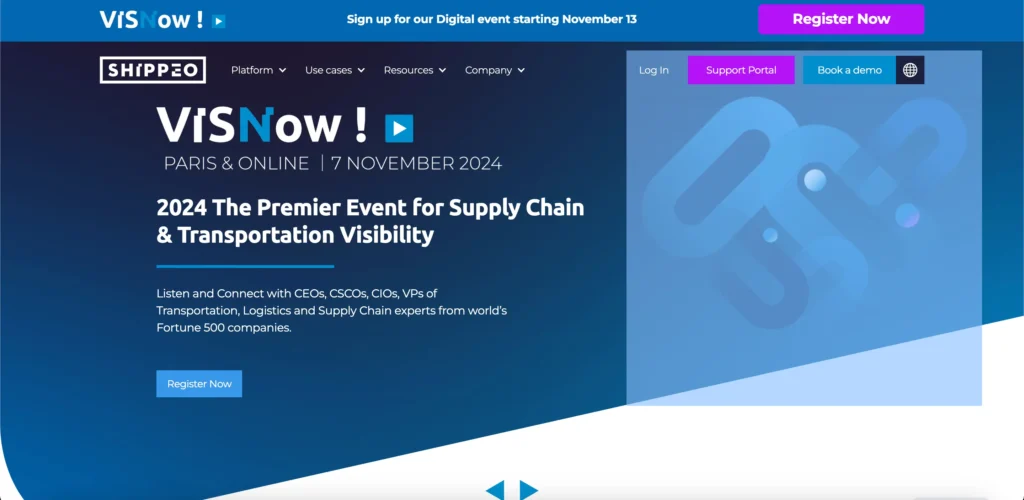
Key Features:
- Real-Time & Predictive Visibility: Provides real-time tracking and AI-driven insights for all transportation modes to optimize supply chain operations.
- Transportation Process Automation (TPA): Automates supply chain processes and manages disruptions in real time, enhancing decision-making.
- Global Network Connectivity: Connects to over 258,000 carriers across 130 countries, offering comprehensive tracking and data integration with over 1,000 systems.
Limitations:
- Primarily Enterprise-Focused: Shippeo is tailored for larger companies, making it less suitable for smaller businesses.
- Integration Complexity: Integrating Shippeo with existing systems can be time-consuming and costly for businesses with complex IT environments.
Ratings:
G2: 4.7/5
Gartner: 2.3/5
Testimonials:
6. FreightPOP
FreightPOP offers multi-modal transportation management, providing visibility into shipping across various modes. It is ideal for businesses seeking cost-effective solutions for global shipping. While Project 44 excels in real-time tracking, FreightPOP shines in freight optimization and managing multi-carrier networks but lacks the predictive analytics and in-depth visibility that Project 44 provides.
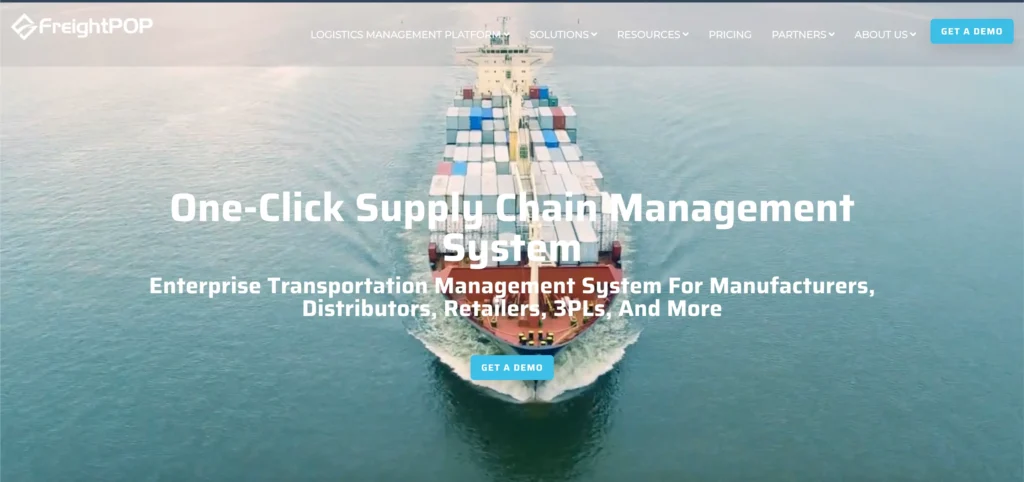
Key Features:
- All-in-One Shipping Management: Integrates planning, tracking, reporting, and billing for all shipping types (LTL, FTL, Parcel, Ocean, Rail, Air) in one tool.
- Real-Time Tracking & Billing Accuracy: Tracks shipments globally in real-time and automatically catches billing errors, streamlining carrier payments.
- Predictive Analytics & Insights: Provides predictive analytics and shipping metrics via Microsoft Power BI for cost optimization and performance tracking.
- Easy Setup & Integration: Simple setup with no long-term contracts, and integrates with over 1500 tools like ERP, CRM, and accounting software.
Limitations:
- Limited Integration with Specific Software: The platform lacks an interface with certain systems like Epicor Kinetics, limiting its ability to fully integrate with some business software.
- User Interface and Tracking Issues: The GUI is simple but not visually appealing, and tracking updates are often not automatic, leading to potential inefficiencies in monitoring shipments.
Ratings:
G2: 4.8/5
Gartner: NA
Testimonials:
“It allows us to pull everything into one place and capture everything so we can better understand our business. The entire team works with you to guide each user with help and support easy to access and chat with right when anything happens. Like all software there are a few hang ups here and there, but the support team is fast to help you resolve it.”
7. Kuebix
Kuebix provides a transportation management system (TMS) with strong freight tracking and cost management tools. Compared to Project 44, it is more focused on smaller businesses and freight optimization but doesn’t offer the same level of detailed, real-time visibility or predictive capabilities that Project 44 excels in for large-scale logistics.
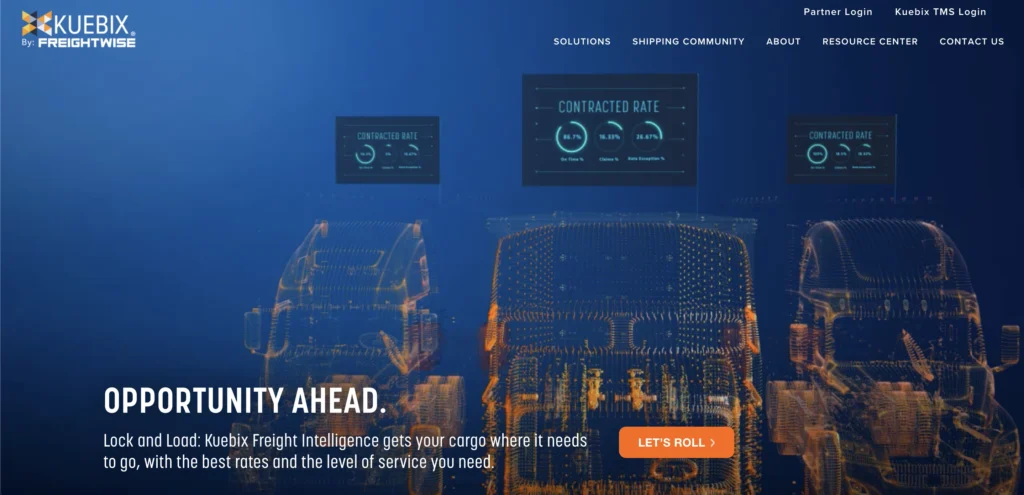
Key Features:
- Multiple Shipping Options: Kuebix supports LTL, Truckload, Parcel, and Intermodal transportation to suit different shipping needs.
- Easy Carrier Integration: It integrates seamlessly with major carriers using APIs and EDI, allowing for quick onboarding and real-time rate access.
- Full Transparency & Reporting: Kuebix provides clear visibility into shipments and powerful reporting tools to track key metrics.
Limitations:
- Limited Multi-Modal Visibility: While it offers good freight management tools, it lacks comprehensive visibility across all modes like Project 44.
- Complex Reporting: Some users find the reporting capabilities complex and difficult to customize to their needs.
Ratings:
G2: NA
Gartner: 4.6/5
Testimonials:
“Easy rate quote layout but lack of rate quote history reports that other TMS platforms offer. Also had conflicting pick up requests sent.”
8. Alpega
Alpega is a robust TMS that provides multi-carrier support and advanced logistics management. While it competes with Project 44 on visibility and tracking, Alpega offers more focused solutions for shippers and carriers and is known for its flexibility and ability to optimize routes. However, Project 44 offers superior predictive insights and scalability for large enterprises.
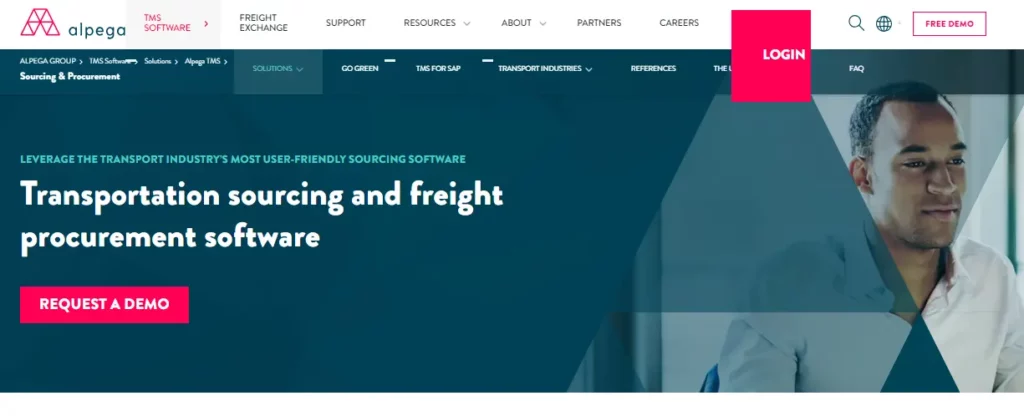
Key Features:
- Extensive Carrier Network: Alpega connects over 80,000 verified carriers, enabling optimized logistics and freight matching.
- Advanced Freight Exchange: The platform offers real-time matching of spot shipments with truck capacity, supporting over 350,000 freight and vehicle offers daily.
- Cloud-Based Solutions: Alpega provides scalable, secure cloud-based tools to enhance logistics operations.
- Sustainability Focus: The company prioritizes eco-friendly logistics solutions to promote greener, more efficient supply chains.
Limitations:
- Lack of Customization: The platform does not allow users to customize features to their specific needs.
- Slow Performance and UI Issues: The user interface is outdated, and system responses, including notifications, are often slow.
Ratings:
G2: 4.3/5
Gartner: 4/5
Testimonials:
“Transportation Request and billing/invoicing can be done centrally without the need to constantly communicate with customers and suppliers. Probably the user interface. Maybe it can be improved to look more modern and with more modern features.”
9. Freightos
Freightos is an online marketplace that simplifies international shipping with real-time booking and pricing. It stands apart from Project 44 by offering a transparent, easy-to-use platform for shippers to compare rates and book shipments. While Project 44 is more focused on supply chain visibility, Freightos excels in simplifying the logistics process and enhancing the shipping booking experience.
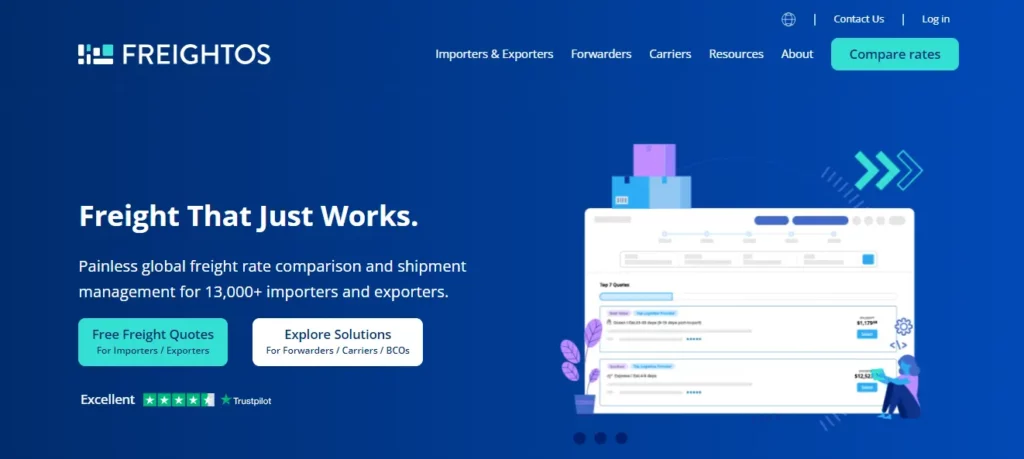
Key Features:
- Compare Freight Quotes: Get the best rates and transit times by comparing quotes for air, ocean, and trucking services from multiple providers.
- Real-Time Shipment Tracking: Track shipments with live updates and receive proactive notifications for any issues.
- Simplified Logistics Management: Easily book, track, and communicate with all logistics providers in one platform.
- Optimize Routes and Costs: Use real-time data to optimize shipping routes and reduce costs.
- Access Accurate Market Rates: View benchmark rates with tools like the Freightos Baltic Index (FBX) and Freightos Air Index (FAX).
Limitations:
- Limited Real-Time Visibility: While it excels in booking and pricing, Freightos lacks comprehensive real-time shipment visibility.
- Narrow Focus on Freight Booking: It is primarily focused on freight booking and pricing, not on full supply chain management, which Project 44 provides.
Ratings:
G2: 3.8/5
Gartner: 4.6/5
Testimonials:
“Used to hold Freightos in high regard, but their recent performance has been nothing short of a disaster.”
Conclusion
Choosing the right supply chain visibility platform depends on your company’s specific needs. Project 44 offers a robust, scalable solution with advanced analytics and real-time tracking. However, its cost and deployment time can be a barrier for some businesses.
For those looking for an all-round option, GoComet is an excellent alternative. It’s easy to use and provides solid tracking and integration capabilities. FourKites and Descartes are also solid contenders, offering advanced features but with some challenges in terms of complexity and cost.
Ultimately, the right choice depends on your business size, budget, and the specific features you need. Assess your company's priorities and choose the solution that best aligns with your goals for 2025.
as G2, Capterra and Trust Radius. Information could change over time based on these companies adding new features to their product portfolio. We recommend you consider this factor while making your decision.



